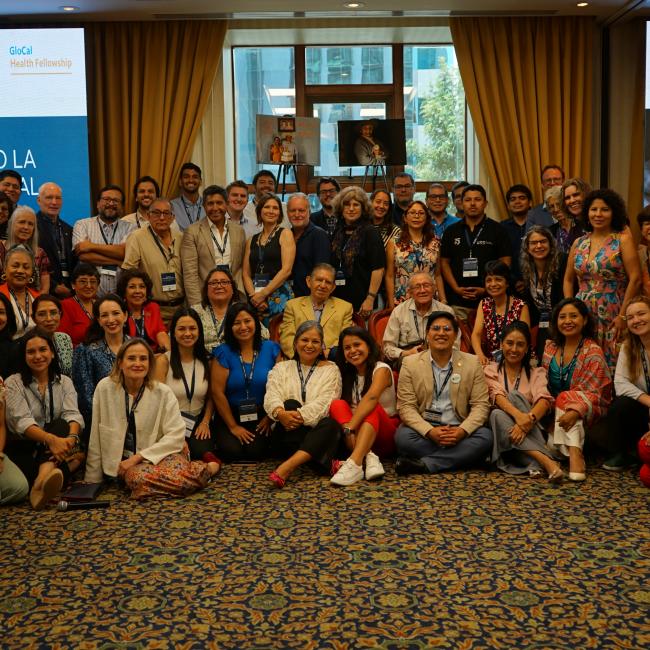Latin American Authors Shine Light on Dementia Realities
A recent webinar focused on Latin American authors shared powerful narratives to educate, destigmatize, and foster understanding about dementia.
To use the power of storytelling for dementia awareness, the Alzheimer's Association International Society to Advance Alzheimer's Research and Treatment (ISTAART), Alzheimer’s Disease International, and the Global Brain Health Institute hosted a webinar, "Narrative Showcase: Dementia Stories for Impact: Voices from Latin America" on December 7. The inaugural event focused on Latin American authors who have created compelling narratives around dementia. These authors not only delve into the challenges posed by neurodegenerative conditions, but also show the sparks of hope in the face of the struggles.
Voices from Latin America
Among the featured authors was Tomás León, a Chilean psychiatrist and Atlantic Fellow for Equity in Brain Health (2020 cohort). León, author of "¡Aquí Está la Abuela!" (Here is Grandmother), shared his commitment to distributing these stigma-reducing children's books for free to care groups, school libraries, and memory clinics. He underscored the potential of narratives to educate and destigmatize dementia.
“I want children to understand what is happening to their brain, but in simple language,” said León. “And the aim is to help them cope with fear, with doubts, with questions about what is happening (in dementia)."
Fernando Aguzzoli Peres, a Brazilian journalist and Atlantic Fellow for Equity in Brain Health (2019 cohort), offered his personal journey as a caregiver for his grandmother with Alzheimer's. Author of "Vovo e um Super Heroi" (Grandpa is a Superhero), Peres emphasized the importance of involving children in dementia conversations, foreseeing it as a catalyst for early and improved diagnosis.
"Dementia is everyone's matter, and caring for other people, caring for a family member is everyone's matter,” said Peres.
Ansilta Grizas, an Argentinian writer, teacher, and care partner, presented her book "Un Temporal," a means of communicating with her father and shedding light on her family's challenges. Grizas focused on the human connection and the daughter's perspective rather than offering a disease-specific guide. She aimed to spark understanding and empathy for those facing similar situations
“In the novel, I didn't want to say the exact diagnosis,” said Grizas. “I talk about the generalities, like the loss of memory and the loss of peace, liberty and the body…it could be Parkinson’s disease or it could be cancer, but I wanted to talk about the relationship.”
Shedding Light on Overlooked Dementia Stories
The discussion, moderated by Fionnuala Sweeney, former anchor/correspondent with CNN International, multimedia editor at Atlantic Institute and Atlantic Fellow for Equity in Brain Health (2016 cohort), provided rich insights into the familial and cultural aspects of caregiving, the nuances of translating and adapting books, and the power of sharing personal stories from individuals affected by dementia.
This event was the first in a developing series that aims to illuminate the often-overlooked stories of individuals grappling with dementia, particularly focusing on the complexities of Alzheimer’s disease and other neurodegenerative conditions. By using the art of narrative, the series aims to create connections, raise awareness, and advocate for empathy. Narrative Showcase will continue to explore other mediums of narrative and storytelling. New webinars will be announced in 2024. Watch a video recording of the December 7 webinar.
Authors

Niall Kavanagh
Communications Officer
GBHI Members Mentioned

Tomás León, MD
Psychiatrist

Fernando Aguzzoli Peres
Journalist & Writer

Fionnuala Sweeney
Journalist & Broadcaster




